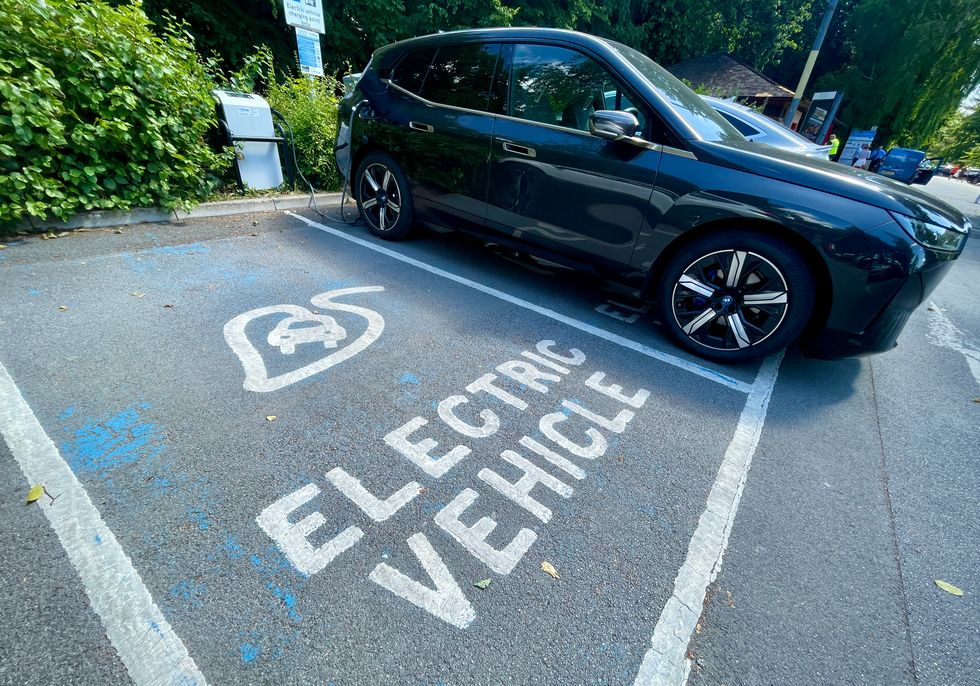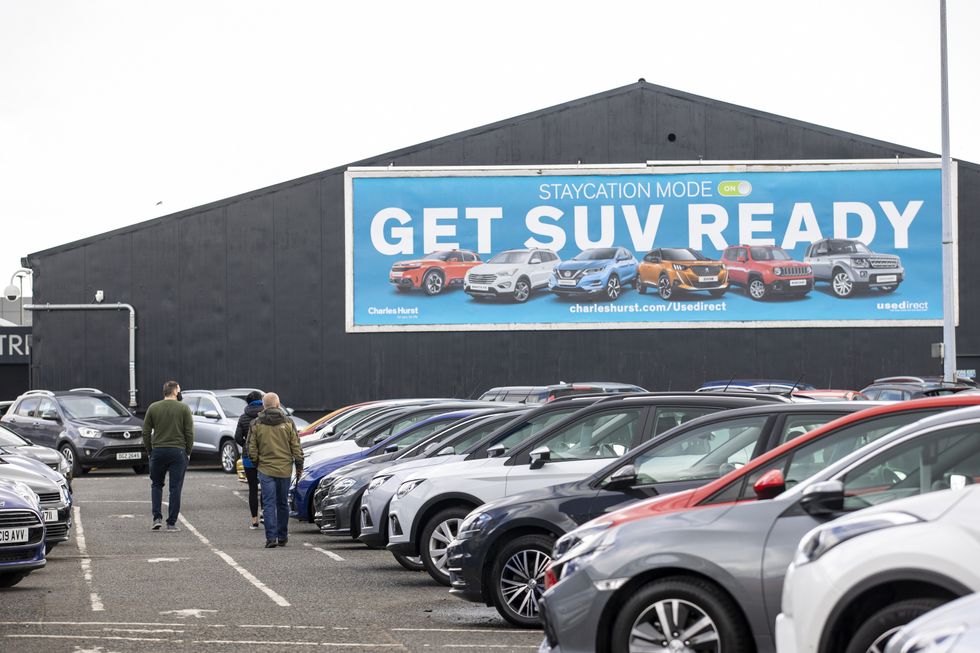Petrol and diesel car ownership rates set to plummet within years amid electric vehicle switch
Car ownership rates across Europe could drop by 20 per cent
Don't Miss
Most Read
Trending on GB News
Car ownership rates could fall dramatically in the coming years as motorists look to make use of more environmentally friendly transport methods.
New data from the National Centre for Social Research suggests that petrol, diesel and electric car sales in the UK will increase until at least 2028.
However, international evidence suggests that car sales in the UK and in Europe will increase in the coming years but eventually decrease after 2030.
Unit sales of passenger cars in the UK are expected to rise from 1.11 million vehicles in 2022 to 1.9 million vehicles in 2028, according to Statista.
Do you have a story you'd like to share? Get in touch by emailingmotoring@gbnews.uk

Sales of electric vehicles are set to increase massively by the end of 2025
GETTYResearch from McKinsey also estimated that car sales will peak by the end of this decade and fall by 2035, with sources stating that car sales in the European Union are forecasted to be almost 20 per cent lower.
The data, entitled Car Ownership: Evidence Review, pointed to outlooks from the Society of Motor Manufacturers and Traders (SMMT) which suggested that the ownership of EVs will grow in the future while petrol and diesel car sales will fall.
Battery electric vehicles are set to increase by 68 per cent from 315,000 to 530,000 by 2025, with a 33 per cent increase for plug-in hybrid vehicles and a 26 per cent rise for hybrid electric vehicles.
On the other hand, diesel sales will fall by 30 per cent from 142,000 to 99,000 units while petrol will fall by 14 per cent, from 1.07 million to 919,000 units.
The report, which was prepared for the Department for Transport, suggested that in the UK, Switzerland, Belgium, France, and Portugal, the end of the transition is expected to be close to 2040.
Other nations will transition to electric vehicles far earlier including Norway by the end of 2026 and Iceland by 2029.
Most other countries across Europe are expected to complete their transition to EVs after the year 2030, in line with the EU's 2035 petrol and diesel car ban deadline.
It also highlihgts how higher purchase price and lower driving range are the main current barriers preventing prospective car buyers from purchasing an EV.
The report stated: "Although EV uptake is expected to increase, there is the tendency for consumers to want to conform with their peers which may mean favouring the purchase of cars with a combustion engine over EVs."
Another recently released report stated that car ownership is considered to be "liberating" for all vehicle owners by giving them a personal choice over "where, when and with who they travel with".
One female driver, 45, from the North West of England, described travelling in the car as "probably the easiest and the least lonely" as motorists have the choice of whether they want someone there.
The report - Quantifying the relationshipbetween loneliness and transport - found that for most people, loneliness was unaffected by the possession of a driving licence, with the exception of people with a health condition.
LATEST DEVELOPMENTS:

Petrol and diesel car sales are likely to fall over the coming years
PARural drivers rely most heavily on cars and feel that it would be difficult to see friends and family without their own private mode of transport.
One of the key findings reported that possessing a licence had a stronger relationship with loneliness than having a car in the household.








